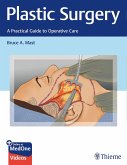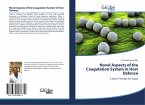Immunological progress remains a widely used form of HIV/ART monitoring, and efavirenz a preferred first line antiretroviral drug. The host for HIV may vary basing on CD4 cell type or values, genetic differences, and co-infections. CD4 cell values vary among HIV seronegative populations and among HIV patients starting ART. Variations in pharmacokinetics and pharmacogenetics of efavirenz are widely documented. This book reports on the role of variability in relevant baseline immunological characteristics among HIV negative and positive populations and how variations in the pharmacokinetics and pharmacogenetics of efavirenz can affect HIV/ART response.
Bitte wählen Sie Ihr Anliegen aus.
Rechnungen
Retourenschein anfordern
Bestellstatus
Storno








